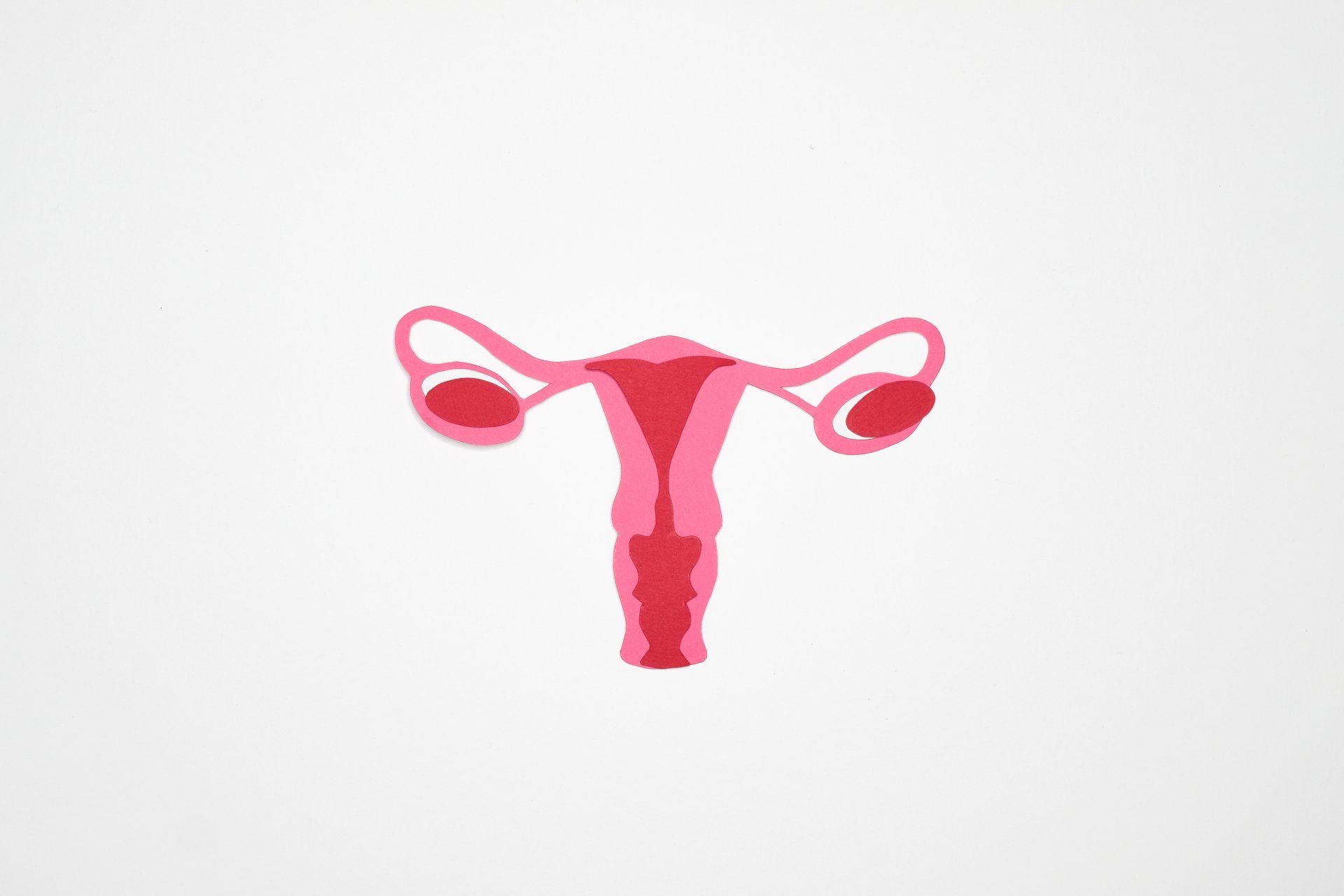What is the link between PCOS and Diabetes?

About 6-15% of women of childbearing age live with polycystic ovary syndrome (PCOS). More than half of this population will develop type 2 diabetes by 40, as revealed by the United States Centres for Disease Control and Prevention (CDC).
Scientists do not know the exact cause of PCOS, but research suggests that women with PCOS are insulin resistant.
Insulin resistance occurs when your cells don't respond to normal insulin levels, affecting their ability to convert blood glucose to energy. And insulin resistance is the primary cause of type 2 diabetes.
Approximately 70% of women with PCOS are insulin resistant.
However, that's not all. To fully make sense of the link between PCOS and diabetes, a brief overview of these conditions is necessary.
What is PCOS?
PCOS is a disorder of the hormonal and metabolic systems in women of childbearing age. It is one of the leading causes of infertility in women.
With PCOS, tiny fluid-filled sacs called cysts form around the ovary. This situation impairs ovulation and causes menstrual abnormalities.
"Just having ovarian cysts isn't enough for a diagnosis. Lots of women without PCOS have cysts on their ovaries, and lots of women with PCOS don't have cysts", according to the CDC.
Doctors base the diagnosis of PCOS on the presence of any 2 of these three symptoms:
- Irregular menstruation or its absence
- Higher-than-normal levels of male hormones
- Several small cysts on the ovaries
What Causes PCOS?
Opinions are sharply divided on the exact cause of PCOS.
Some experts believe that the overproduction of the male sex hormone, testosterone, drives PCOS. Others argue for insulin resistance, while some investigators propose a multifactorial approach.
A range of evidence backs both schools of thought, making it difficult for experts to reach a consensus.
Doctors at the ENDO 2022 debate titled "PCOS: Who's Really Driving the Bus?" canvassed different positions.
"Insulin resistance leads to hyperinsulinemia, which drives the production of androgens", Dr. Ricardo Azziz, a professor of obstetrics and gynecology at the University of Alabama, states.
On the other hand, a professor of molecular medicine at the Icahn School of Medicine, Dr. Andrea Dunaif, argues that too much testosterone is the causal factor.
Explaining why everyone with type 2 diabetes doesn't get PCOS, Dr. Azziz revealed that PCOS is more than just insulin. "It's not sufficient to be just insulin resistant," he says.
Also, the CDC proposes that insulin resistance plays a pivotal role.
In addition to insulin resistance and excess androgen, Mayo Clinic lists heredity and low-grade inflammation as possible risk factors.
But Johns Hopkins says insulin resistance drives higher androgen levels.
As of today, the medical community agrees that the exact cause is unclear. More studies are needed to unravel this.
What are the symptoms of PCOS?
PCOS symptoms include
- irregular periods: women with PCOS have fewer periods every year
- weight gain: due to increased insulin level
- excessive hair growth in unusual places
- acne
How are PCOS and Type 2 Diabetes linked?
The relationship between PCOS and type 2 diabetes isn't fully understood. But most theories use insulin resistance to explain the link between these conditions.
With type 2 diabetes, your cells are resistant to insulin. Since insulin resistance has also been observed in PCOS patients, the risk of diabetes is about 3 to 8 times higher in people with PCOS.
Like type 2 diabetes, obesity or being overweight are risk factors for PCOS. Around 38-88% of women with PCOS are obese or overweight. The percentage is similar for diabetes.
Nevertheless, it's not known if obesity is a risk factor for developing diabetes in PCOS.
In the same vein, evidence suggests a higher risk of gestational diabetes mellitus (GDM) in patients with PCOS.
A study conducted in one Chinese hospital concluded that of the 196 PCOS patients that participated, about 24% had an incidence of GDM.
Below is a rundown of studies linking PCOS and diabetes.
A study that compared the risk of developing type 2 diabetes in women with PCOS and women without PCOS among Danish women found that the risk of developing type 2 diabetes is 4-fold in women with PCOS.
A 2014 Australian study that included women from the national health insurance database found a positive correlation between PCOS, T2DM, and GDM.
This review also found that PCOS and type 1 diabetes are associated. "Hence, screening for PCOS and androgen excess should be included in current guidelines for managing type 1 diabetes in women," the authors noted.
How to co-manage type 2 diabetes and PCOS?
Lifestyle modification is the best approach to co-managing both diseases. Regular exercise and a balanced diet are often recommended.
Diet: Foods with high glucose values worsen insulin resistance and should be avoided. Avoid sweetened beverages, fruit juice, trans fat, and dried fruit if you have these conditions.
Carbs like broccoli and whole fruit are healthier because they are fiber-rich. Opt for a diet with high nutrients, low fat, and calories.
Shed excess weight: Obesity and being overweight complicates PCOS and diabetes. It has been found that fat deposition in the mid-section plays the highest role.
A 5-7% weight reduction is beneficial. You should also note that diet plays a role in your weight loss journey, so go for food that aid weight loss.
Regular exercise: Exercise increases insulin sensitivity and helps you cut excess weight. Beneficial exercises include brisk walking, bicycling, and swimming.
What is the takeaway?
Women at risk should watch out for the symptoms of these diseases. Regular screening helps identify their symptoms and allows early detection.
Practice lifestyle modifications and talk to experts.
Sources:
Barber TM, et al. (2021). Obesity and polycystic ovary syndrome. DOI: doi.org/10.1111/cen.14421
Bjugstad (2022). Insulin and Androgens in Polycystic Ovary Syndrome: Which is the Causal Factor.
Escobar-Morreale HF, et al. (2016). Type 1 Diabetes and Polycystic Ovary Syndrome: Systematic Review and Meta-analysis. DOI: doi.org/10.2337/dc15-2577
Glintborg D, et al. (2017). Development and Risk Factors of Type 2 Diabetes in a Nationwide Population of Women With Polycystic Ovary Syndrome. DOI: doi.org/10.1210/jc.2017-01354
Jamil AS, et al. (2014). A case-control observational study of insulin resistance and metabolic syndrome among the four phenotypes of polycystic ovary syndrome based on Rotterdam criteria. DOI:
doi.org/10.1186/1742-4755-12-7
Joham AE, et al. (2014). Gestational Diabetes and Type 2 Diabetes in Reproductive-Aged Women With Polycystic Ovay Syndrome. DOI: doi.org/10.1210/jc.2013-2007
Li X, et al. (2021). The risk factors of gestational diabetes mellitus in patients with polycystic ovary syndrome. DOI: doi.org/10.1097%2FMD.0000000000026521
Marshall JC, et al. (2012). Should all women with PCOS be treated for insulin resistance? DOI:
doi.org/10.1016/j.fertnstert.2011.11.036
Mayo Clinic Staff. (2017). Polycystic ovary syndrome (PCOS).
mayoclinic.org/diseases-conditions/pcos/symptoms-causes/syc-20353439
Polycystic ovary syndrome (PCOS) Fact sheet. (2018).
womenshealth.gov/a-z-topics/polycystic-ovary-syndrome
Polycystic Ovary Syndrome.
https://www.hopkinsmedicine.org/health/conditions-and-diseases/polycystic-ovary-syndrome-pcos
Author Bio:
Timilehin Olaniyan is a pharmacist who writes health and medical content. He leverages his training, experience, and practice to provide well-written content that educates professional and lay audiences. He believes bridging the communication gap in health information will help people make smarter health decisions. He aims to increase access to evidence-based health content. He has over seven years of experience and has earned the top-rated badge on Upwork. He enjoys playing and watching football.
Thank you for reading Patient Education Essentials, the Write Shift RN blog.
Disclaimer: This article was written as a guest post for Write Shift RN LLC's blog. The information in it may not be wholly fact-checked or edited, allowing the reader to see the writer's work and skills firsthand. This information is not intended as medical advice. It is for informational and educational purposes only. Always talk to your doctor or other qualified healthcare providers about any questions or concerns you may have regarding medical conditions.











